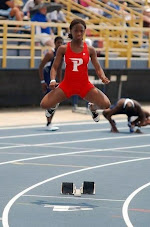.
.
It would take 1.2 million mosquitoes biting you simultaneously to drain all your blood.
.
.
Mosquito - The Little Blood Sucker
.
.
.
Mosquitoes are insects that have been around for more than 30 million years. And it seems that, during those millions of years, mosquitoes have been honing their skills so that they are now experts at finding people to bite. Mosquitoes have a battery of sensors designed to track their prey, including:
Chemical sensors - mosquitoes can sense carbon dioxide and lactic acid up to 100 feet (36 meters) away. Mammals and birds gives off these gases as part of their normal breathing. Certain chemicals in sweat also seem to attract mosquitoes (people who don't sweat much don't get nearly as many mosquito bites).
Visual sensors - if you are wearing clothing that contrasts with the background, and especially if you move while wearing that clothing, mosquitoes can see you and zero in on you. It's a good bet that anything moving is "alive", and therefore full of blood, so this is a good strategy.
Heat sensors - Mosquitoes can detect heat, so they can find warm-blooded mammals and birds very easily once they get close enough. Something with this many sensors sounds more like a military aircraft than an insect. That's why mosquitoes are so good at finding and biting you. As we'll see later, one of the only ways to stop mosquitoes from finding you is to confuse their chemical receptors with something like DEET. Like all insects, adult mosquitoes have three basic body parts:
Head - This is where all the sensors are, along with the biting apparatus. The head has two compound eyes, antennae to sense chemicals and the mouth parts called the palpus and the proboscis (only females have the proboscis, for biting).
Thorax - This segment is where the two wings and six legs attach. It contains the flight muscles, compound heart, some nerve cell ganglia and trachioles.
Abdomen - This segment contains the digestive and excretory organs. So you have a sensor package, a motor package and a fuel processing package -- a perfect design!
Little FlyThe word "mosquito" is Spanish for "little fly," and its use dates back to about 1583 in North America (Europeans referred to mosquitoes as "gnats"). Mosquitoes belong to the order Diptera, true flies. Mosquitoes are like flies in that they have two wings, but unlike flies, their wings have scales, their legs are long and the females have a long mouth part (proboscis) for piercing skin.





